Niche market analysis is the key to success for any online or offline business.
Of course, if you’re to start a business, what’s the one thing you do primarily?
Is it keyword research?
No…
It’s digging down a niche for your business. It’s niche market analysis that you do.
Unless you find a profitable niche market for your online business, what’s the use of coming up with great keywords with high CPC or huge search volume?
The worst mistake you can do when starting a business is not putting in-depth research into finding a PROFITABLE niche.
If there aren’t much products to promote in your chosen niche or if you can’t find interested audience in your niche, your effort will be fruitless.
So,
Successful business = Profitable Niche = High Search Volume Keywords X High Search Intent
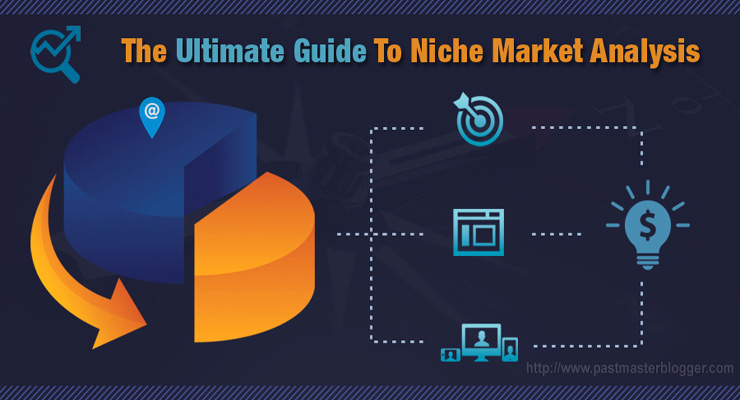
Who is this guide for?
This guide is for you if you’re new to Internet Marketing wanting to learn niche market analysis or just need some fresh ideas to vibe you up.
Searching for something specific? You can click on any of the chapters and jump straight to get your info.
What You Will Learn
• What is a Niche Market?
• Step by Step process to niche market analysis before starting an online business
• Factors that make a good niche market
• 30 Expert Roundup on what to consider during niche selection – Passion or Money
• How to find a proven & profitable niche market – The EXACT tactics I use
• How to analyze if your niche is profitable or not
• Analyzing competitor sites and testing out the niche
When starting out, most people start directly with the keyword research process.
This is a BIG mistake.
Just as you type your primary keyword into the Google Keyword Planner, it comes up with very closely related keywords. It has the lack of coming up with new keyword ideas.
Let’s take an example.
What ideas or words does your mind pop up with hearing the word cricket?
A human mind will search for these niches with relative keywords.
But when you type the same keyword into the Keyword Planner, what does it come up with?
The niches that popped up in your mind doesn’t show up. However, these can be the most profitable niches in your market.
The keywords – not directly related – but close to the niche doesn’t show up in GKP.
So you need to dig deep down into the finding a profitable niche market first and then go for analyzing keywords of the niche.
What is a Niche Market?
A niche is a sub-segment of a larger market.
For example, you want to enter the weight loss industry. That’s a huge multi-billion dollar industry with big companies to compete with.
Would you, as an individual, have the resources, time or money to compete head-to-head with the big companies?
I guess, no.
So, drill down into sub-niches within the larger niche where the it’s more of a level playing field. That’s your niche.
An example of sub-niches within the weight loss niche market would be weight loss for women > weight loss for women after pregnancy.
You can further niche down. The more you niche down, the better your chances of success is.
Step by Step Process to Niche Market Analysis Before Starting an Online Business
Niche down doesn’t mean you select such a narrow field where you can’t write more than 10 articles.
Drill down to a level where there will be enough information for you to write and market. Focus to solve the problems of one specific type of people and market effectively to them.
How to drill down into the niche market?
Health > Diabetes (a common problem nowadays), Diabetes in men > Diabetes in men under 40.
Finance > Loans > Payday Loans > Payday loans in the UK
The more you drill down, the lesser will be your competition and the higher your chances of success will be.
This should have given you an insight into what a niche market is.
How to define your target niche market
A well-defined target niche market has become more important than ever.
Some many say they target homeowners, or small business owners. These are too general.
Targeting a specific market doesn’t mean you’re excluding people but rather you’re marketing to a specific market that is more likely to buy from you.
For example, an e-learning portal can choose to market to students wanting to get tutor from home between the ages of 18 to 30 with family disposable incomes of $100,000+ in the US market. To define the market further, the portal can choose to target only those interested in MBA. This can be further niched down into those wanting to crack MBA Entrance Exam and those already in their MBA semesters.
So, having a well-defined target audience will make it easier for you to know where and how to market your business.
Here’s a checklist to guide you through to understand your target market.
Understand your target niche market demographics
1. Age
2. Gender
3. Location
4. Income
5. Education
6. Marital status
7. Occupation
Understand the psychology of your target niche market
1. Hobbies
2. Lifestyle
3. Interests
4. Behavior
5. Personality type
6. Attitude
After you’ve collected these data, now is the time to evaluate them.
Ask these questions yourself and write them on a piece on paper backed on the data you’ve collected above.
• Are there enough interested people that fit my niche market?
• Is there any need among my target market for my product/affiliate product/service?
• Will my target audience really benefit from the products or services?
• Can my target audience afford to buy the products or services I recommend?
• How accessible are my target?
Factors that Make a Good Niche Market
There are mainly 2 factors that make a good niche market.
A niche where people have serious issues and wants a solution to urgently.
A niche where people is passionate about something ansd wants to derive pleasure out of it.
Now, why both these kinds of niches are good?
When people have serious issues, they usually look for solutions desperately. And if you can provide the solution to them, they will almost instantly take it off.
For example, a person suffering from acne would be looking for an instant cure. If you can provide a practical solution to the problem, he or she will most likely grab the solution you’re offering.
Niche markets such as weight loss, loan repayment, dating, embarrassing problems are areas where people look for solutions desperately.
The second is a niche market in which people is passionate about. If a person is passionate about something, he or she will likely spend lots of money on it because it will make them feel good.
That’s why travel, cooking, hunting, hobbies and sports niches are so lucrative.
However, you have to make sure that the market size, demand and product availability and intent of buying is good. Also, whether the niche is evergreen or seasonal.
24 + 1 Expert Roundup on What to Consider During Niche Selection – Passion or Money
A common debate among Internet Marketers is whether to choose a niche you’re passionate about or where the money is.
It’s best to combine both but that’s may not be always possible.
So, let’s first hear what experts have to say on this.
I’d recommend passion because you’re more likely to follow through and take action. Only taking action gets results!
Definitely agree with Alistair here that only taking action can produce results. Stop reading. Start taking action on what you have learned till now.
Passion, 110%. Money will come when you a) don’t cling to it, b) trust your inner compass. Intention + action = the secret.
Here too Amy suggests taking action will produce results.
Passion. Because it’s a hard slog and you need to love what your write about.
Find the overlap of passion and money.
I agree Dave, passion + money is a great combination to earn quick success.
Hey, If you can’t combine both, I’d pick money unless you have lots of time.
Honestly, I haven’t been passionate about any niche I’ve been in yet. My passion is the process of building something new. I don’t think I could recommend one over the other. It’s just a matter of perspective. Both can be successful.
Follow your passion for sure. If you’re only in it for money burnout is sure to follow. Passion keeps you going.
Probably passion for the first niche. Just following money may lead to disappointment. Passion always fun regardless…
Agree Matthew. Passion is highly needed for your first niche site because just as Mallory says, passion keeps us move ahead.
Passion!!!
I don’t think it’s black and white. You should do whatever idea you’ll follow through on.
Here he recommends to start with an idea and follow that idea with a goal throughout the process of building the business.
Passion 100%. If you do not love what you do, you will eventually burn out. Follow money once you can outsource to others.
Good point highlighted Neil. It becomes necessary to outsource after a length of time.
Passion! Always!
I would go with passion, because you are more likely to complete the project if you care about it.
For newbs? Doesn’t matter, inaction is the real killer – they need to pick something and get stuck in, travel down the path.
Do something that 1) you’re at least interested in 2) has potential to make money.
So, Tung Trun doesn’t go highly for passion but a niche where you have at least some interest.
Passion every time!!
A combination of both is best
Passion, all the way Mainak! Money is elusive and will flee when a newbie blogger; passion is always with you.
Love your point Ryan stating Money is elusive.
I don’t think they have to be mutually exclusive
Either 1 is fine but get a more experienced person to advise you. Otherwise, you may get too wrapped up in details.
Doug Cunnington makes a good point of getting expert help to get the right direction.
I’d recommend passion, but if something doesn’t make you money, it stops becoming your passion, so it needs to be monetizable.
Depends how much you need the money. If you are struggling financially, you’ll end up hating your passion.
Either can work, but gun to my head? Screw passion. Your passion is likely overcrowded. Make $$ and find what you love there.
Money follows passion.
Here Justin, Elisa, Larry and Dom makes a little different view going for money over passion.
How I select a niche?
Mostly I follow passion when choosing a niche but I also make sure that the niche is profitable.
When I first started, I selected few niches that I had passion in but couldn’t monetize it.
Then what happened?
The passion dies off and it was becoming a burden for me.
So, now I go for passion but make sure that the market is viable.
However, if I see real money in a niche that I am not passionate about but is too hard to pass on, I do take the opportunity but outsource the main task of creating content.
So, Combine Passion with Money…
My Personal Tip: Money comes first. If a niche is profitable and if you have a little knowledge about how to take the business forward, you can outsource some tasks like writing that needs in-depth knowledge. Passion comes second.
if a niche isn’t profitable but you’re just passionate about it, the passion will likely die off with time if money doesn’t flow in.
Ideally, it is good to start on a niche where you have some knowledge and is also profitable.
It’s easier to get the initial success from a first time project with a combination of passion and money.
How to Find a Proven & Profitable Niche Market – The EXACT Tactics I use
A lot of people who are new to online marketing for the first time try to find niches that no one else knows about or have very few marketers competing.
The truth is there are no unknown niches. The case the niche is unknown to you.
Even if you find a niche that’s not actively marketed, there might be a reason. Maybe there’s not much demand or not many products to monetize.
Going after evergreen niches with a proven track record, customers, demand and products to sell make sense as you know there is money to be made.
So, how to you find a niche market.
Start by analyzing yourself.
What are your interests and what problems do you face…
Pick a pen and paper and randomly write about your hobbies and interests. Some interest that you would even spend money on.
Write down the problems you’re facing in your love life, financial life, health, career and day to day life.
Spend the entire day hearing and viewing everything from marketing point of view.
Even when watching the TV or speaking to someone, understand the problems they face and see if you want to turn that into an online project.
Jot down the ideas and think if you would like turning any idea into an online project without yet evaluating it from the point of profitability or demand.
So, there you already have a list of potential ideas.
But if you think your list of potential ideas are something that cannot be monetized or you prefer to follow a more professional approach where the money is, then you can use the methods explained below.
1. Amazon.com
The biggest online retailer sells pretty much everything and is a great platform to find products that are in demand, which ultimately leads to choosing your niche.
Go to amazon.com and in the search bar, you will see a tab with a dropdown showing All. Click on the dropdown and you will get a list of categories or (niches).
Choose a category and hit enter.
On the left, you will find lots of sub-categories or niches to choose from. You can even choose best-selling products or new products of your chosen niche to monetize your site.
2. Clickbank.com
Clickbank is the #1 digital marketplace. Much like Amazon, here you will also find lots of niches and sub-niches.
Go to clickbank.com and select Marketplace from the top navigation. A new page will open up. On the left, you will see categories.
Click a category and there you have lots of sub-categories or specific sub-niches with products for every sub-niche.
If a niche has lots of products available, it’s a sign that the niche is profitable.
3. Flippa.com
Flippa is a huge marketplace for buying and selling websites. Using some analysis, we can also check the type of niche sites that are selling, thus leading to determine what niches are profitable.
Lewis Odgen of Cloud Income has described this method beautifully in his guest post at Matt’s blog. Check it out here.
4. Twitter
Twitter is a great platform to find out hot and new trending stuff. Log in to Twitter and navigate to What’s Trending tab. Check the hashtags and you’ll find some amazing hot trends.
These niches are not evergreen but can be a hot niche to monetize and make some quick bucks.
5. Yahoo Answers
Yahoo Answers is another great platform to see what questions people are seeking answer to in real time.
Go to Yahoo Answers and on the left-hand is the navigation with lots of categories.
Click on one and you will find sub-categories or niches to target.
Here you will also find questions that you can create content on. So, you have all – a niche and ideas to create content on.
6. StumbleUpon
Stumbleupon is a great platform to find niches and websites based on your interests.
At the bottom of the page is a list of interests or categories. From there, you can find lots of sub-niches and sub-sub-niches.
Go to Stumbleupon and like in the screenshot above, you can find a list of categories or niches.
7. Google Trends
You can find some hot and popular niches using Google Trends. You can use the Search feature to find latest trending niches of the day and the top charts feature to find most searched and trending topic.
Clicking on a category will take you to explore deeper niches within the category.
8. Ebay.com
Ebay is a great platform for buying and selling physical products.
Go to ebay.com. At the top of the page is a Shop by Category dropdown. Click on See All Categories and a page will open up listing all niches. You can find your niche here or click on a category here to dig deeper into a specific niche.
9. Ubersuggest
Ubersuggest allows you to explore deeper niches within a broader niche. It returns ideas in the order of A to Z with keyword ideas that people are actually searching for.
All you have to do is simple enter the niche and hit enter. It comes up with a list of potential sub-niches.
10. Google Suggest
If you already have a niche in mind, say you want to enter into the acne treatment industry, but don’t know how to further niche down, then all you have to do is simply type your niche and Google without hitting the enter button. Google will come up with a list of potential sub-niches that people are actually searching for.
11. Google Keyword Planner
You can use Google Keyword Planner not only to find keywords but also for niche research.
Log in to Google Adwords, go to Keyword Planner and select “Search for new keyword and ad group ideas”. Enter your niche idea here or the URL of a website in your niche (or say your direct competitor) and check the keywords of the website.
Those may be your potential niches to target.
12. Alltop.com
All Top is a mainly blog directory with lots of blogs enlisted into their directory.
On the top navigation is an A to Z order. Click on any one of them will open up a huge list of categories. You can even narrow down a niche by further click on a category to refine your niche.
So, after all the brainstorming, you have come up with a list of potential niches ideas from within a broad market to a narrower niche.
Now it is time to research for market viability and profitability of the niche.
How To Analyze If Your Niche Is Profitable
What is the next thing to do after you have the list of niche ideas in hand?
To figure out if the niche has demand, is profitable, has products to promote and if you can find target audience for the niche.
A common misconception among people looking for a profitable niche is that they try to find a niche that no one else knows about or isn’t yet actively marketed.
That’s not the case. The niche is unknown to you.
Even if you find a niche that no one else is marketing, there must be some reason for it. Maybe there isn’t much audience or has no products to promote.
So, it’s better to stick to niches that has proven track record of making sales and audience interest.
How Can You Determine If Your Niche Idea Is Worth Pursuing?
Using different tools, you can determine whether a niche is profitable or not.
Google Keyword Planner is a free tool that will help you determine how many people are searching for your niche every month.
At this point of research, you’re not going to look at the competition but just the search volume.
Log in to https://adwords.google.com/ko/KeywordPlanner/Home. If you don’t have one, you will need to sign up for a Google Adwords account.
After logging in, click on Tools and select Keyword Planner.
You will be presented with different tools in the Keyword Planner.
All you need will be to use just 3 tools to determine the viability of the niche and find keywords to target for your niche.
- Search for new keyword and ad group ideas
- Get search volume for a list of keywords or group them into ad groups
- Multiply keyword lists to get new keyword ideas
When you select “Search for New Keyword and Ad Group Ideas”, you will find a few fields to enter data.
Enter your niche idea in the “Your product or service” field and the country you want to target.
Customize your search with filters. For example, you can set the criteria to get ideas of keywords that only get above 5000 searches per month.
Next, click Search and a new page will open up. You will find 2 tabs – one showing Ad Group ideas and the other Keyword Ideas.
Navigate to Keyword Ideas to check the search volume and competition of your keyword.
I prefer niches or keywords with at least 5000+ searches per month from the US and above 50,000 searches per month globally.
Check Google Trends…
Do a quick check on Google trends to determine if the idea if dying off soon or is on the rise.
The competition of the keyword should also be taken into account for achieving faster success.
Many do not focus on search intent of the niche/keyword but this is an important criteria when determining the profitability of a niche.
Understanding the search intent is more of an art than science.
A little trick to understand is to check the Suggested Bid for the keyword/niche. The higher the bid, the greater is search intent. That’s an indication that the search for the niche is increasing and demand is growing.
Advertisers don’t spend money on a product that isn’t in demand. So this is an indication of growing search intent.
Can the site be monetized?
The best niches are the ones that can be monetized with both digital and physical products.
That’s not always possible.
So, as long as there’s lots of products for your niche be it digital or physical, and with a good demand, it is fine to monetize.
Check Amazon, ClickBank, EBay, JVZoo, Commission Junction and ShareASale to find produts related to your niche.
Suppose your niche is hair care for women above 40 after pregnancy. If you can find very much related products specifically to the niche, that’s very good. Otherwise, closely related products such as hair care for women after pregnancy or just hair care for women will work.
Just because your niche is, hair care for women above 40 after pregnancy doesn’t mean you have to find products EXACTLY tailored to your niche. Products tailored at hair care for women would work too.
However, if there are very few products related specifically to your niche, then it’s a bad sign. It means there’s usually not much demand.
With Amazon, you can sort products based on customer’s ratings. This will help you come up with products that people have really benefited from.
Remember, generally, there’s only one feedback for every 50 to 100 sales on Amazon. So, a product with 100+ feedback means there have been lots of sales for the product.
Advertising a product with good customer ratings means you have greater chances of customer retention rate.
The key to success is not to sell one time but to retain the customer and sell him time and again.
See there’s no set number to see signs for a healthy market, but few indications to determine the market viability.
Check other websites and blogs.
Do a Google search for your niche.
“Your niche + blog”
This will show up a list of blogs in your niche.
Check what these blogs are selling, how they are promoting, how they capture subscribers, how they perform on social media and so on.
Analyzing these statistics will help you understand what you should be doing for your blog.
Find forums in your niche….
People are always active on forums if they are passionate about a topic.
Go to findaforum.net to find few forums in your niche. See the type of questions people are asking and you’ll get an idea about the possibility to monetize your niche and that if people would be interested.
You can also Google search using the query “your niche + forum”.
Check Social Media…
Log in to your Facebook and Twitter account and search for groups related to your niche by typing in the keywords of your niche. If lots of fan pages and groups come up with huge following, it’s an indication that your potential audience has a mindset to connect.
You can also do the same thing for Pinterest, Google Plus, Reddit and Stumbleupon.
Check if people are advertising…
When you search for the niche on Google, are there ads displayed on the top, right or bottom of the page?
If yes, that’s an indication there’s money to be made in the niche.
People don’t advertise in a niche where money cannot be made back.
How to Do Competitor Analysis for Your Niche Market
Can you outrank your competitors?
Check for authoritative blogs and websites in your niche…
You have checked the facts of search volume, competition and search intent with the GKP.
Now, do a Google search for the websites and blogs in your niche.
Install SEO Quake and MozBar. These are two fee browser tools for analyzing competition faster.
How to install and set up MozBar and SEOQuake
SEOQuake Installation
Go to https://addons.mozilla.org/en-us/firefox/addon/seoquake-seo-extension/ and click on Download Now. Follow the prompts to activate the toolbar after installation.
MozBar Installation
Go to https://chrome.google.com/webstore/detail/seoquake/akdgnmcogleenhbclghghlkkdndkjdjc?hl=en and click Add to Chrome. Follow the prompts that come up to complete the installation of the toolbar.
Sometimes these two toolbars doesn’t work together and may conflict. In that case, use one of them at a time while putting the other in Disable mode.
Now, type your keywords or niche into the Google search bar and hit the Search button.
Find the number of authoritative domains that are showing up for your niche.
Check the PA, DA, PR, Referring domains, Domain Age, and On page SEO for each results that show up.
If the first two pages on Google contains websites with < 10 PA and DA, weak link profile with backlinks mainly from article directories, Yahoo! Answers, hubpages, web2.0 properties or squidoo lenses, it’s a good indication – a sign that you can reach the top position easily.
The top position means more traffic.
And,
More Traffic = More Money.
So a unique point to evaluate is to test your niche from competitor point of view.
Would you be able to rank your site?
To stand out, wither you need to present your niche with a unique angle or provide something better than your competitors.
Start analyzing the things they are doing good, what they are failing at, whether they are covering all topics within your niche, whether you can provide an unique angle to the niche.
The point is not to create something revolutionary but do the same thing as the established players are doing while asking the question, why should anyone pay attention to you leaving out the already established ones?
Check the on page SEO of the top 10 results of your niche from different angles.
Can you offer better content?
If your competitors have only 500 to 700 word posts, you can take this opportunity to create in-depth posts that offer the real meat.
See if your competitors are creating infographics, videos, podcasts, ultimate guides, webinars or tutorials. If no, you can take this opportunity.
If others are charging for videos and podcasts, offer them for free.
The point is to look for a unique angle that your competitors aren’t willing to do or hasn’t yet done.
Can you market better?
There are many niches where people blog just for fun or as a hobby.
If you can provide better content and market effectively, actually monetizing your site, you’re bound to succeed.
Being a better marketer means you’re able to drive your targeted traffic to your site and convert them.
Grow your email list, make your visitors follow you on social media or convert them into paying customers.
Can you drive traffic?
There are many ways to drive traffic to your blog – paid advertising, social media, forums, blog commenting, SEO, content marketing and guest posting.
Are any blogs in your niche with huge traffic where you can guest post?
Are there any blogs in your niche with active engagement that allows commenting?
Do the forums in your niche have an active audience profile?
Do the forums allow placing clickable signatures at the bottom of posts?
Another great way to drive traffic to your blog is through content marketing.
Create an epic content about a subject on your niche and get the content in front of your target audience.
Many blogs are always on the look for high quality articles, even if they have been published. Look for these sites and get to syndicate your content.
You can also consider guest posting to relevant niche sites in exchange for a link back to your site.
Trying paid advertising is also a great way to get the initial success and a junk of traffic. See if you can afford to compete with other PPC marketers, understand the advertising trends of your niche – whether they use Facebook ads, Google Adwords, Stumbleupon, Twitter or banner ads on other sites.
Once you’ve evaluated your niche from competitor point of view, it’s time to test your niche.
If you’re determined that your chosen niche has demand, has products, has interested audience you can reach and easily rankable, it’s time to test out the niche practically with few bucks before spending your hard-earned cash.
Test out your niche….
If you wanted to start a blog, it’s best to test out the niche with few bucks before making large investment of both money and time.
To start, you need a domain and a host.
I’ve using Bluehost for my sites and I trust them. You also get a free domain, so there you can save around $12. Hosting with Bluehost costs around $3.96 per month, so signing up for a month to test the waters in your niche.
Write 5 article and add an email subscription form to the site.
You can try Aweber at $1 for 30 days.
Create an email series for 30 days, say every alternate day, offering some valuable content to your subscribers, solving the problems of your readers and also promoting few products related to your niche.
The main goal should be to offer value to the readers with the secondary option as promotion.
Since driving free traffic to a blog takes time, you can use paid advertising for few days. Use Facebook ads or Google Adwords to drive traffic.
Did I say Bluehost offers $200 worth credits when you sign up with them, which you can use for Facebook ads, Google Adwords and Bing ads?
So, driving traffic to your blog through paid advertising is best in this scenario because you have only 30 days to test your niche.
Set up Google Analytics for the domain.
Track your email opt-in ratio, open rates and click-through rates comparing to the traffic you’re getting daily.
After you’ve tested your niche and know that it’s viable and worth pursuing, it’s time to put full effort into growing it big.
The key action to take now is to turn the niche site into an online business – an authority site, ecommerce site, offer products and services or build email lists.
The path to success is to focus on your goal, stay motivated and spend time researching and analyzing the market before delving into it.
With this, we come to the end of the Ultimate Guide to niche market analysis.
Let me know if you really found the guide useful.
I’d also appreciate if you share it on your favorite social media as a sign to show that it’s indeed worth creating more such useful guides in the future.

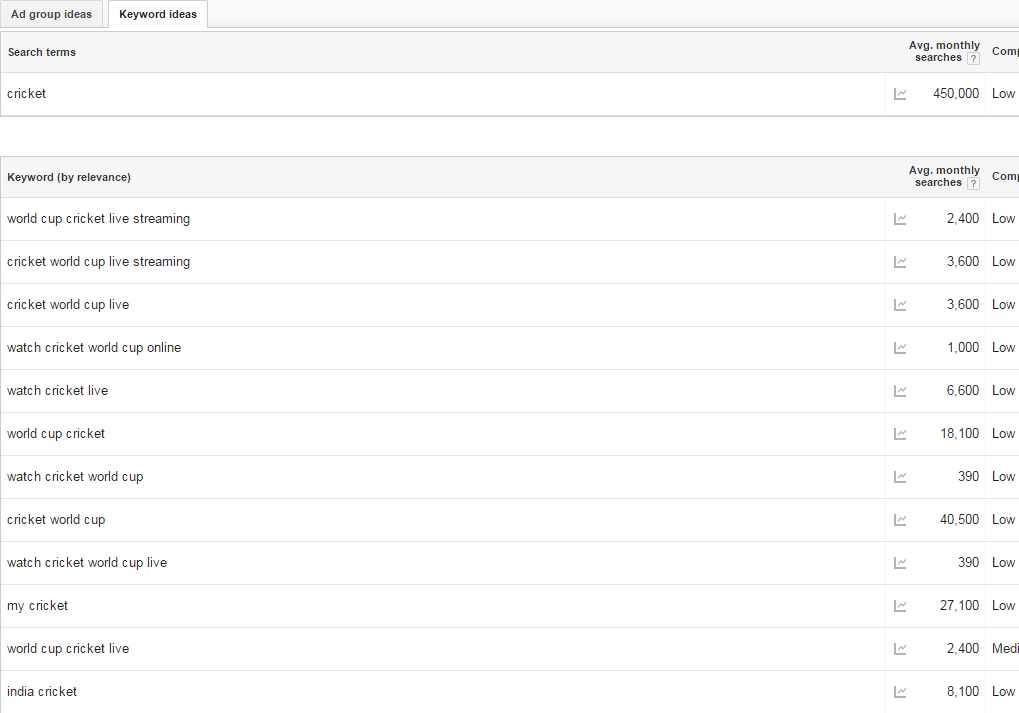














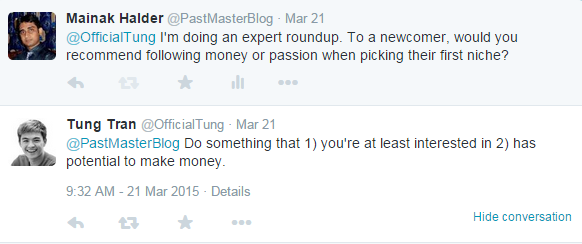











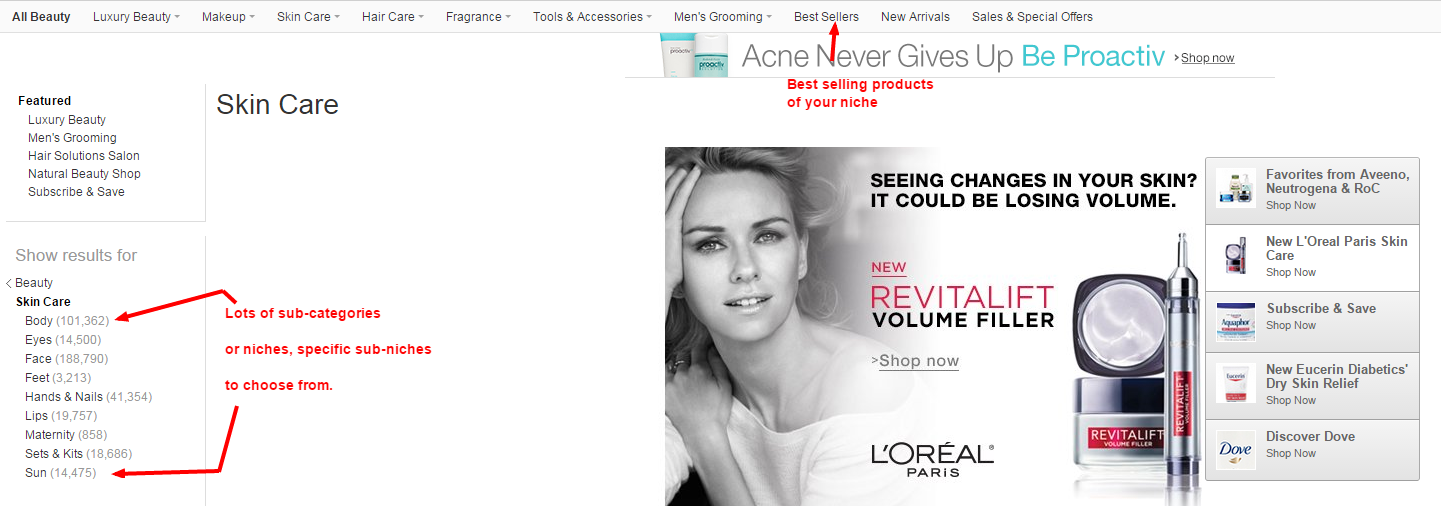
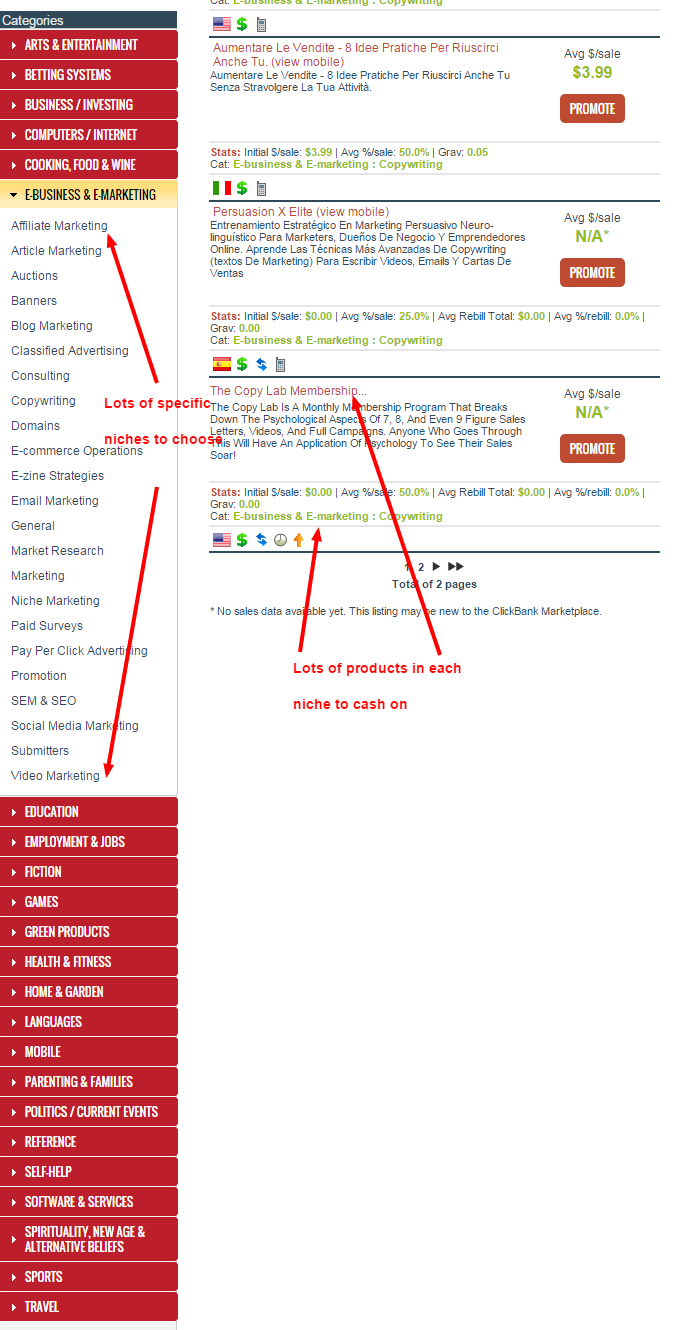
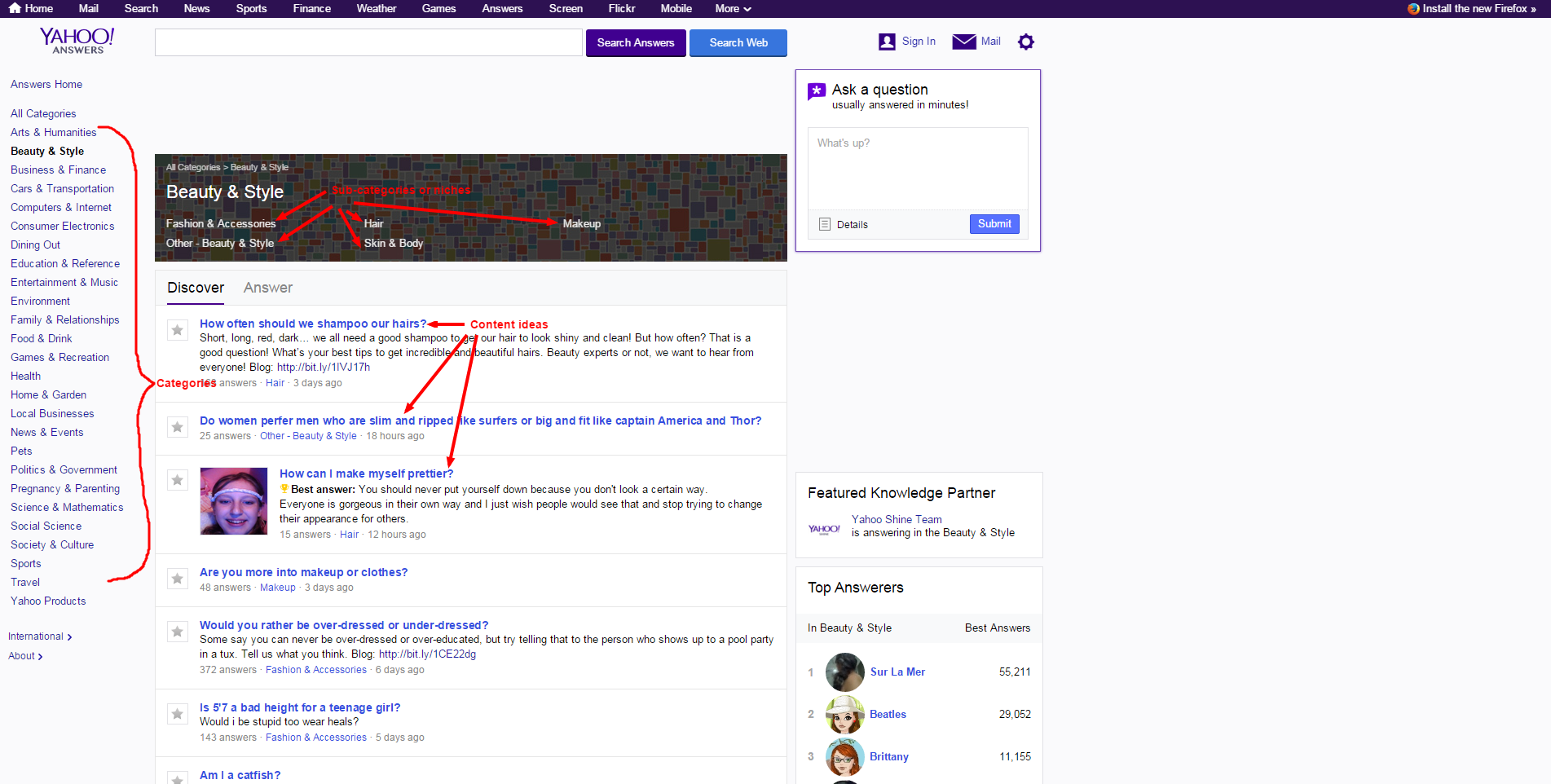
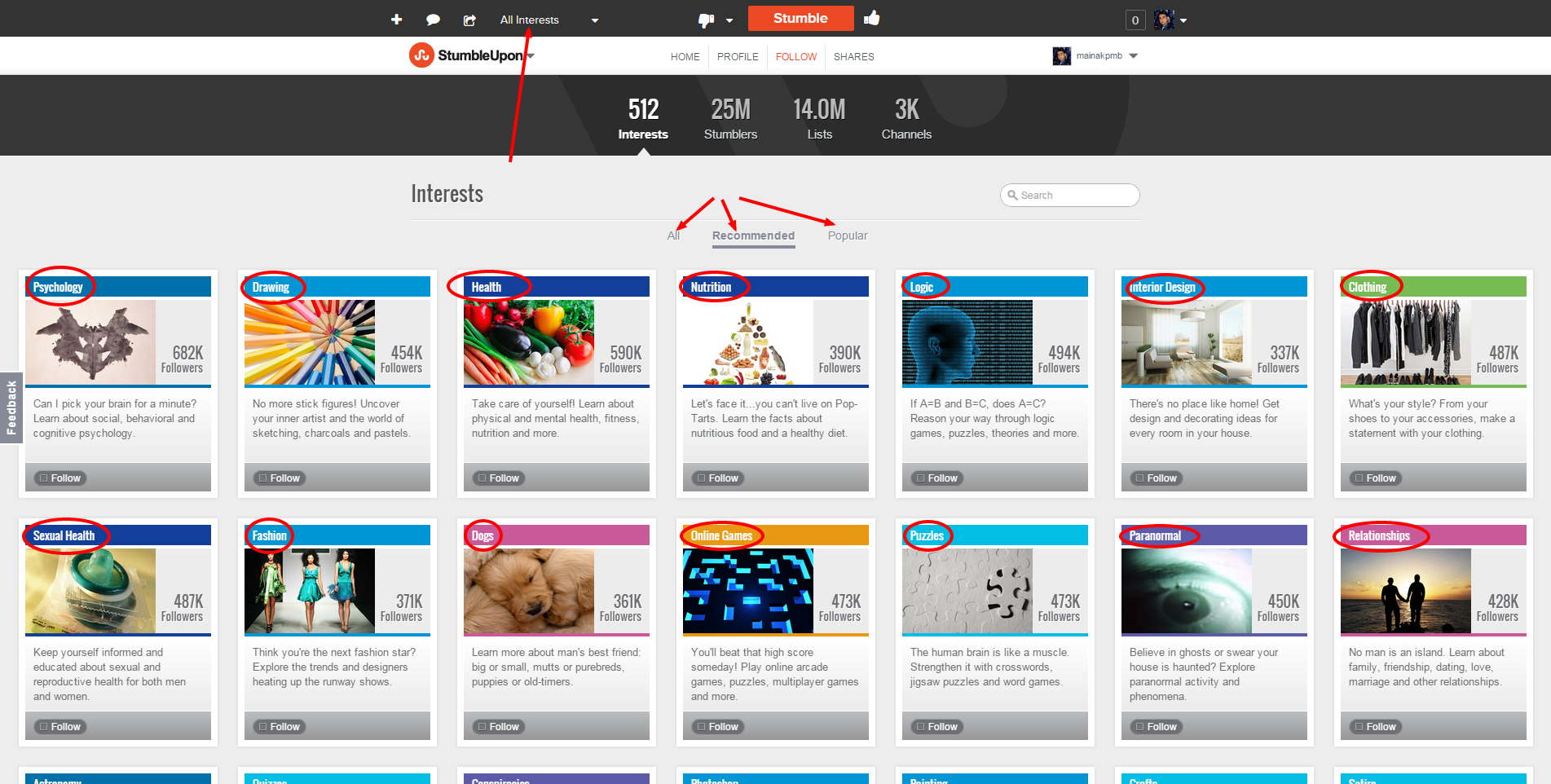

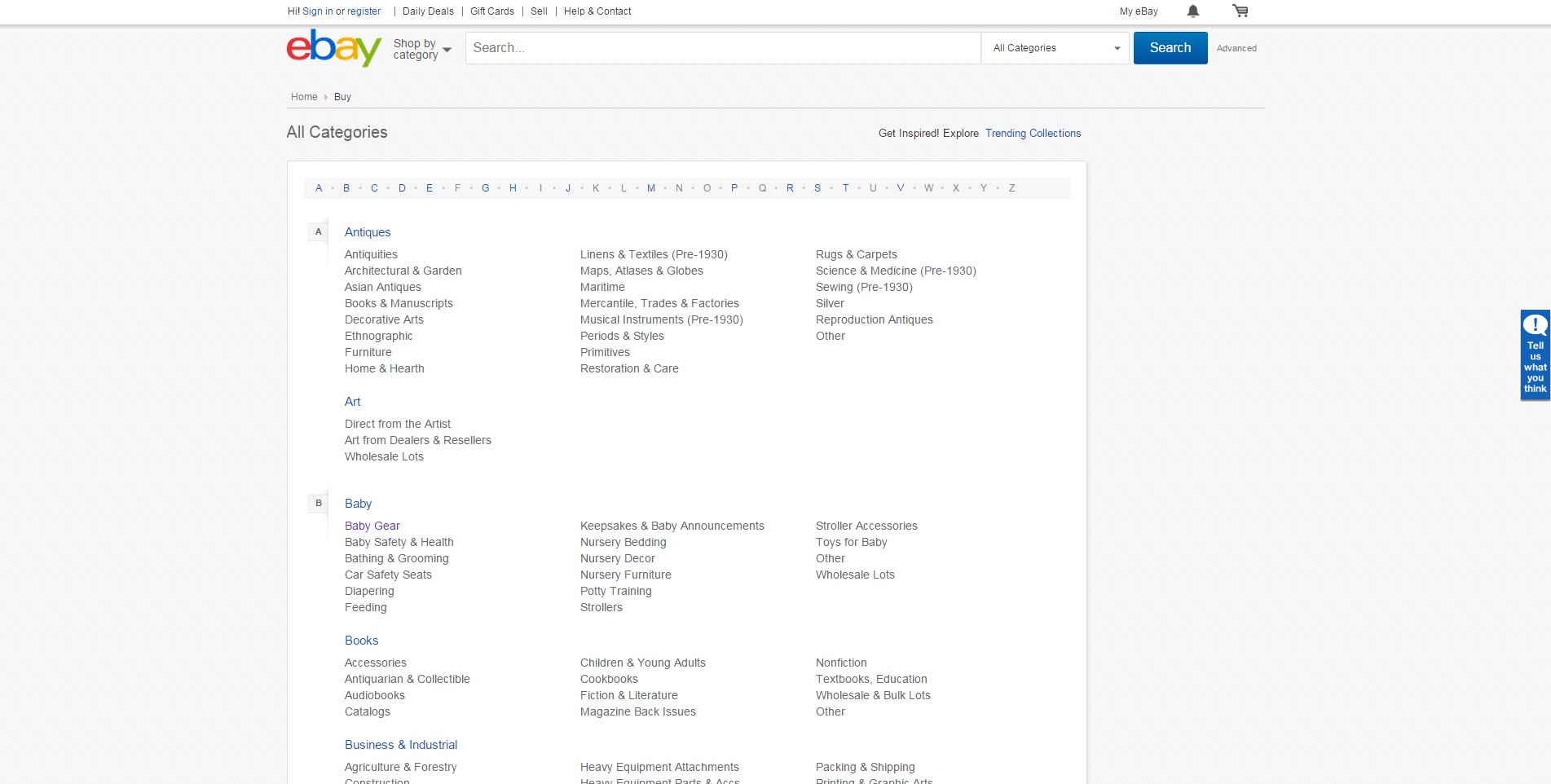


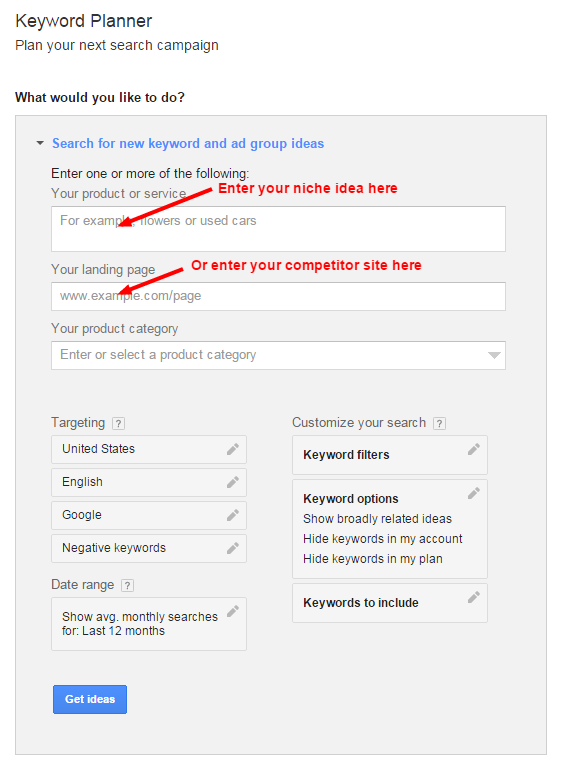
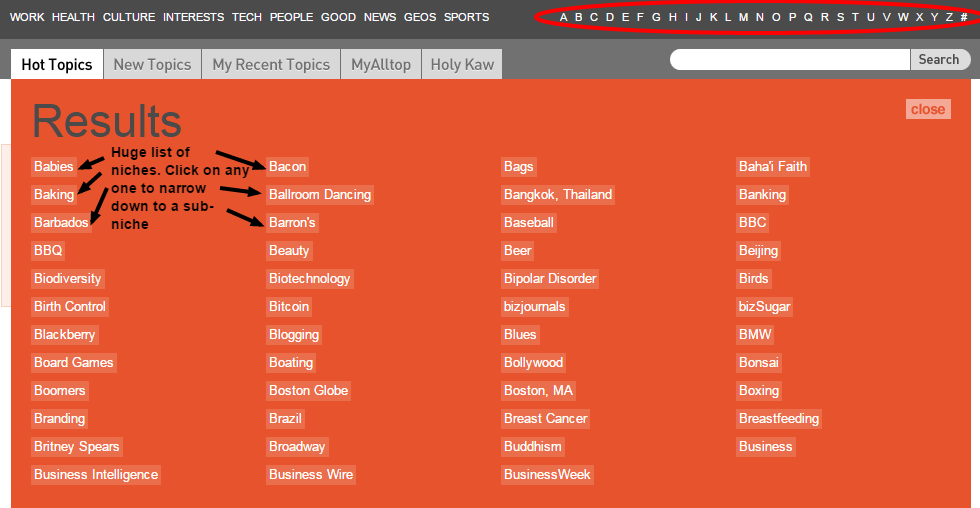
Hi Mainak!
What an epic guide on niche market man!
You really outdid yourself on this one!
I would definitely recommend this guide on niche market. There is just so much valuable information. And the great thing is that you organized everything neatly.
I like the tip you gave, about following the money first, and the passion second. I agree that if you are passionate about a niche that is not very profitable, that passion can die down if you have a hard time making good money with it.
I think we can say, we are all VERY passionate about the same thing, and that is money! haha
It is very important to do a deep research on the niche you want to work with and build an online business with. A lot of people fail to do this, and just “wing it” online.
Your guide here, will be so helpful to the newbies in this industry..
There is an actual science, and process, to build a profitable niche marketing business online. You can’t just blindly choose something, and expect it to generate you some good profits.
One of the best tips, I have learned, from the successful in this industry, is to get very specific with the niche. The more specific, the better!!
Great post you created here man!
Keep up the great work!
Have an awesome week!
Hi Freddy,
Welcome to my blog and lovely to see you here.
Yes, I do go with money first because even if many of them are not blogging for money but at least, in my opinion, everyone would like to bring up the recurring cost with hosting, domains, autoresponders. But those into professional blogging and out to set up an online business would definitely go after money because otherwise, we can’t reach success.
Passion is needed but wherein lies the passion if there’s no money coming in?!
And I’m glad to hear that you liked the post and feel recommending to any niche market out there. You really made my day!
BTW, I visited your blog and it’s really great. Hope we get to connect more and get to know each other more.
Mainak.
Hey Mainak,
This guide is very resourceful. It goes deeply into niche market analysis. Expert Internet marketers can take away many insights from it just as newbies would find the details invaluable for online success.
Niche market analysis is surely important for online success. Many successful bloggers today advocate for it’s implementation.
Yes, passion and money should be balanced when considering the niche to select. One is not superior to the other during the process.
I have bookmarked this guide and converted to pdf format for future reference!
I left the above comment in kingged.com as well
Hi Sunday,
Thanks for bookmarking the article. I’m sure it might help any of your friends in the future.
What I think is that analyzing the niche market before starting a business contributes 80% to whether a business will succeed or fail. So, taking the time to strategically analyzing it deeply makes the task easier for the future.
Thanks again for stopping by.
Mainak.
Niche marketing will really help with your marketing, positioning and branding as you will attract the ‘right people’ easier. People with similar interests behave and are attracted to similar things. And also a lot of your clients will do the hard work for you as they will refer you, and your profile and credibility is easier known within your tribe.
Yes, getting the right people to the blog is important, even if that means a handful of visitors like 100 per day. This is the targeted traffic and converse well.
Mainak I found this to be hugely insightful, even if I understood only 1/2 of it. My wife and I have just joined the 60’s and are intent on starting a niche market sales site. With your book, do you explain in more detail some of the subjects in here? Such as “Check the PA, DA, PR, Referring domains, Domain Age, and On page SEO” because you completely lost me there. I have joined Amazon, and will have them guide me in the initial stages so that I can become aware of the stages of setup and understand them better. After reading this I will side by side work through your suggestions as it seems it will speed up the learning process immensely. Thanks for the guide and I hope to be sharing progress at times.
Hi Russell,
Thanks for stopping by and welcome to the site!
I’m sorry that you could not understand the article fully, but I will be happy to explain you if you have any queries.
Also, I will definitely keep in mind your request of explaining the PA, PR, DA and on-page SEO, and create an article on those topics.
Let you new site and business on niche market sales skyrocket with success and hope PastMasterBlogger quickens your learning process holding your hands.
Have a good day!
Thanks,
Mainak.